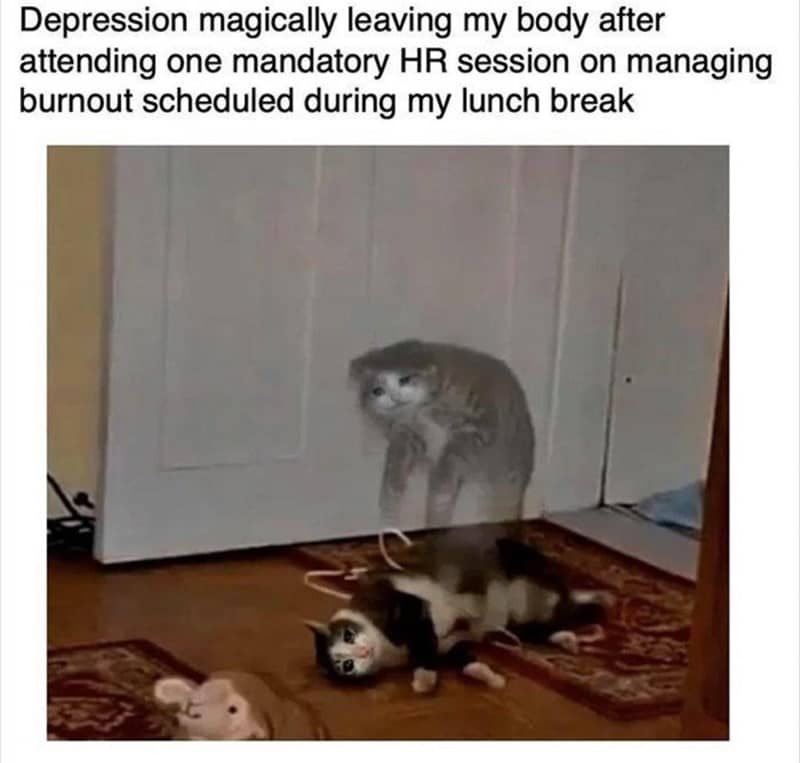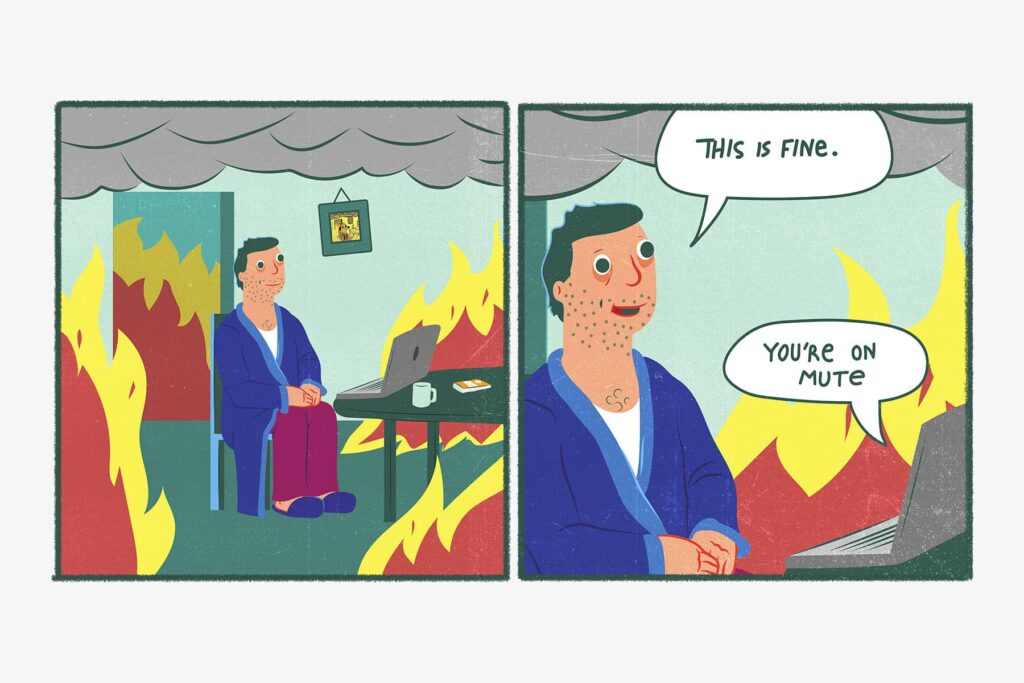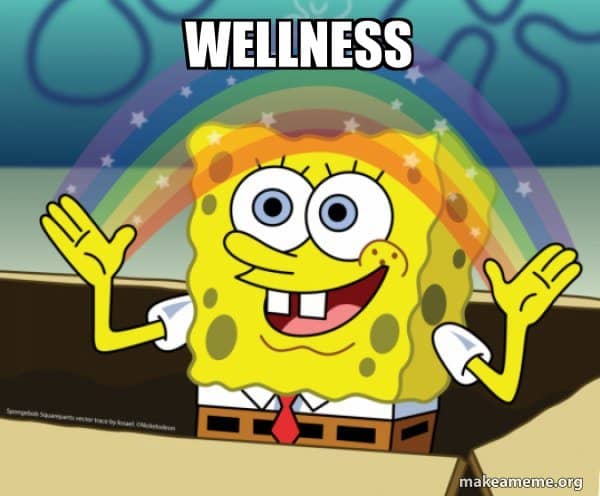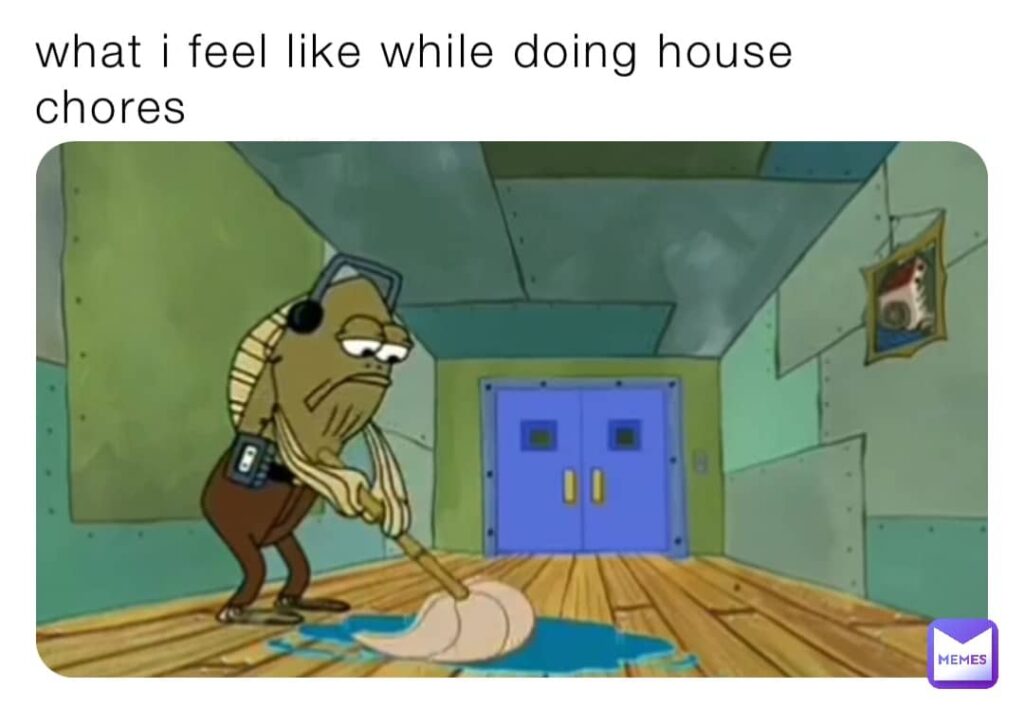How to Help Someone With Burnout | 7 Practical Strategies
Burnout is like if stress and exhaustion had a baby, and that baby grew up to be a soul-sucking monster. It’s no joke, and if you’ve got a friend who’s drowning in it, here’s how you can throw them a lifeline.

How to Help Someone With Burnout
1. Provide Social Support
First things first, show up. I’m not talking about liking their Instagram posts. I mean real, face-to-face, “I’m here for you” kinda support. Listen to them vent without trying to fix everything. It’s not about solving their problems, it’s about being there while they figure it out.
Social support can be really effective in reducing the negative effects of burnout.
To offer effective social support:
- Make an effort to see your friend face-to-face
- Listen without judgment and validate their feelings
- Offer empathy and understanding
- Organize group hangouts
2. Encourage Professional Help
Look, sometimes we’re in too deep to see the way out. That’s when it’s time to call in the big guns. Therapists, counselors, people who’ve made a career out of healing our brains. Cognitive behavioral therapy (CBT), MBSR, whatever alphabet soup works – encourage your buddy to give it a shot. And hey, don’t forget—you can totally jump onto platforms like BetterHelp to grab that support when you need it.
Professional interventions that can address burnout include:
- Cognitive Behavioral Therapy (CBT)
- Mindfulness-Based Stress Reduction (MBSR)
- Burnout-specific counseling services
3. Emphasize Work-Life Balance

Balance. It’s not just for tightrope walkers. Help your friend remember there’s life outside of work. Negotiate for flexible hours, work from home, whatever it takes. And for the love of all that’s holy, use those vacation days!
Help your friend evaluate and adjust their workload:
- If possible, negotiate flexible hours or remote work arrangements.
- Set aside time for hobbies, relaxation, or activities you enjoy
- Take advantage of your vacation days
To identify if you or someone you know has burnout, use our article The 12 Stages of Burnout with Examples
4. Promote Self-Care

Eating right, moving your body, and getting enough sleep isn’t just for Instagram influencers. It’s like changing the oil in your car – ignore it long enough, and you’ll break down. Help your friend make these habits stick.
Consistent self-care practices are crucial for preventing and managing burnout. A few you can offer to your friend are:
- Maintain a balanced diet rich in fruits, vegetables, lean proteins, and whole grains.
- Reduce intake of caffeine and sugar, which can exacerbate stress and anxiety levels.
- Engage in regular physical activity, such as walking, running, yoga, or strength training. Exercise has been shown to reduce stress and improve mood.
- Use good sleep hygiene practices including maintaining a consistent sleep schedule, creating a restful environment, and avoiding screens before bedtime.
5. Help Set Boundaries
No is a complete sentence. Help your buddy practice using it. No work emails after 7 PM. No meetings during lunch. No unrealistic deadlines. It’s not being difficult, it’s being sane.
Boundaries set realistic limits on participation in relationships or activities. When helping someone with burnout consider encouraging them to:
- Establish personal boundaries like no work emails after a certain time
- Decline meeting invitations scheduled during lunch breaks
- Propose more realistic deadlines for projects
- Practice saying “No”
6. Offer Practical Support

Sometimes, the best help is the most obvious. Cook a meal. Do their laundry. Walk their dog. It’s not glamorous, but it’s game-changing when you’re running on empty.
Here are some really practical ways to reduce stress and load on someone feeling burnt out:
- Offer to help with cleaning, laundry, or grocery shopping.
- Cook meals or organize a meal train with friends to ensure your loved one has access to nutritious food without the added stress of preparation.
- Offer to babysit or take care of pets to give your friend some rest.
7. Make Regular Check-ins
Recovery takes time. Keep showing up. Ask how they’re doing, what they need, if you’re helping or annoying them. Be patient. Healing isn’t a straight line, it’s more like a drunk person trying to walk home – there’s gonna be some zigzags.
- Listen more than you speak and validate their experiences and emotions
- Create an environment where your friend feels safe to express their feelings and concerns without fear of judgment or repercussions
- “How have you been feeling since our last check-in?”
- “Are there any specific challenges you’re facing right now?”
- “Is there anything you need more of or less of from me?”
- Be patient, recovery from burnout can take time
Remember, burnout is serious. It’s not just having a bad day or needing a nap. It’s a full-on system crash. But with the right support, people can and do recover. So be that support. Your friend will thank you, and hey, you might just be saving a life.
Now go forth and fight burnout like it insulted your mom. Your burnt-out friends are counting on you!


